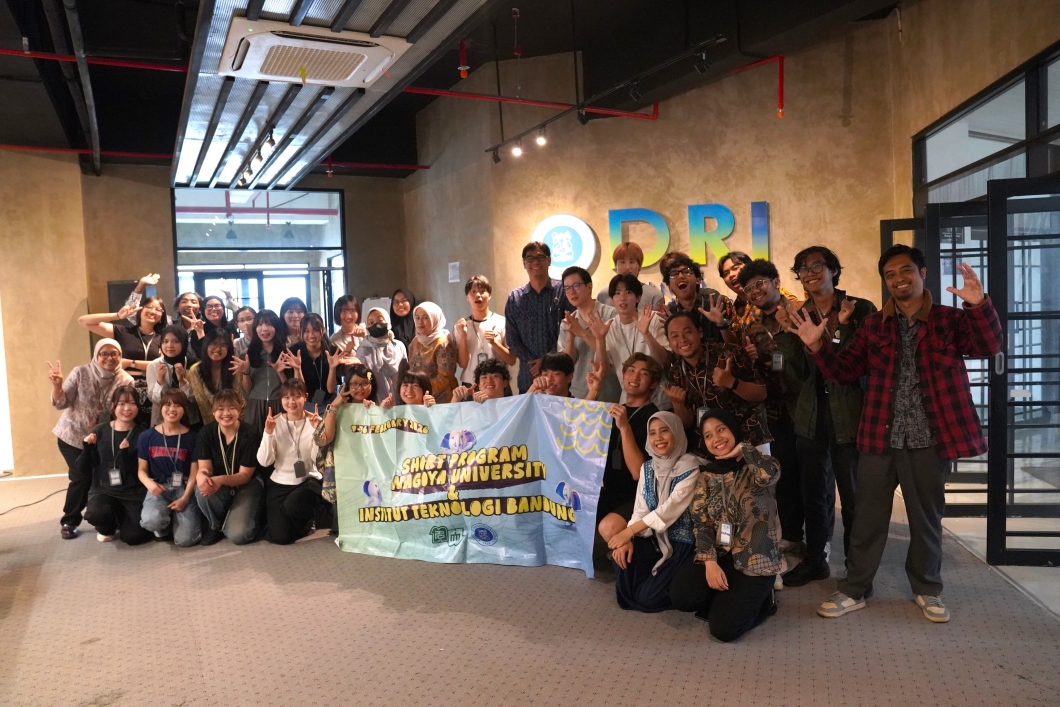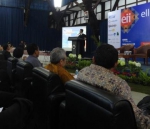Scientific Speech by Prof. Suhardi on Contribution of Service Computing to Digital Transformation
By Adi Permana
Editor Adi Permana

BANDUNG, itb.ac.id – A professor of School of Electrical Engineering and Informatics (STEI) of ITB, Prof. Suhardi, delivered a scientific speech about Contribution of Service Computing to Digital Transformation of Service Industries and Public Services” at Aula Barat of ITB Ganesa Campus in Bandung on 13 July 2019.
He explained that mono-disciplinary is a perspective towards science that focus on one academic discipline to solve a particular problem, while inter-disciplinary is a perspective that involves transfer from a certain academic discipline onto other academic discipline to solve a problem, so that it can bring up new methods or new academic disciplines, for example, social computing, computational medicine, behavioral computing, cognitive computing, and service computing
It is explained by Prof. Suhardi that development of service computing science in inter-disciplinary and multidisciplinary is affected by two main factors. The first factor is development of world economy toward service economy in which services takes on bigger role. As for the second factor, SSME (Service Science, Management, and Engineering) adopted by service companies absolutely requires Information Technology-based service system.
“Those challenges open up opportunities for service computing to respond to problems surrounding digital transformation that currently occurs to service industry and public services sector,” said the professor in Information Technology Research Group.
Prof. Suhardi explained that service computing will give contribution both micro and macro to digital service industry sector. In macro term, service computing can provide a system platform that accelerate digital transformation of service industries. For example, financial service sector requires a platform that, in macro scale, provide software service and service system for companies to use specific service computing for particular sector or sub-sector.
Prof. Suhardi said that Service Computing Labs of Information Technology Research Groups (KKTI) of STEI ITB have created several works of research and innovation in the last three years which focus on development of methodology for engineering of service computing system platform. The research produces a reference model for service computing platform, a framework model that shows interaction and relationship between the components. The model is needed to build reference service computing platform model which consists of layers. Each layer has different function and can be used to optimize and improve development activities of service system.
“This model becomes a framework for the base of future platform development,” said Prof. Suhardi. There several models created, such as Service Computing Resource, Service Computing Model and Composition, Service Computing Analysis. This can be beneficial for initial development and can have further development according to company’s need.
Prof. Suhardi explained there are several challenges and opportunities for service computing in the future. According to an analysis conducted by research team, this service computing should not be mono-disciplinary but inter-disciplinary so that the application will give more benefit.
This service oriented paradigm still undergoes changes. Despite well-received, there is not much evidence yet. It still needs further proper development and implementation.
“We know that the emergence of new online application can drive other businesses and services, for example Gojek and Grab. Gojek which used to only serve transportation service now can drive other business such Go food, Gopay, etc. this innovation will always happen and service computing system can collaborate,” he said.
Development of service computing should be done simultaneously in mono-disciplinary, interdisciplinary, and multi-disciplinary. The contribution of service computing to digital transformation of service industries and public services is to provide methodology for engineering of service computing system platform to build software and service system according to needs.
Reporter: Elisabeth Sirumapea (Management 2020)




.jpg)
.jpg)

